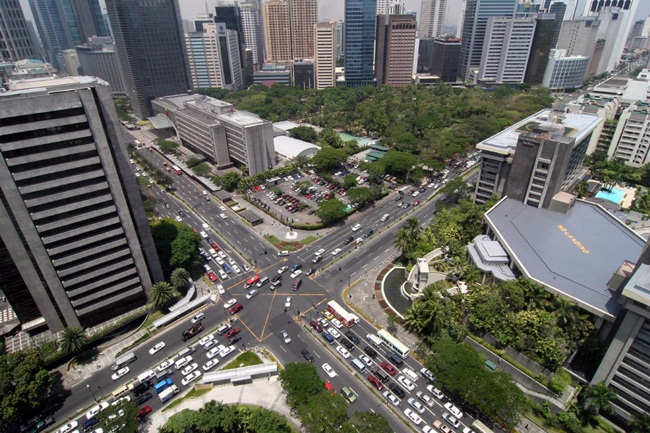The Philippines is now open for tourism. Read about the COVID-19 entry requirements for German citizens & the steps to take for a seamless travel experience
Travelers from Germany can now visit the Philippines for tourism if they are fully vaccinated against COVID-19. The Philippines eTA for German citizens is the easiest and quickest way for travelers to obtain a Philippines visa to visit the country. German travelers who satisfy all the entry requirements for visiting the Philippines can complete an online application for the Philippines eTA to receive their visas electronically via email.
The Philippines is one of the top tourist destinations in Asia but perhaps, a little underrated compared to others in its neighborhood of countries. However, it is worth exploring for the curious global wanderer.
Currently, German citizens can enter visa-free for up to 30 days in the Philippines. However, this will likely change soon as the Philippines government plans to introduce the visa waiver for German citizens, which will require them to seek the Philippines eTA before visiting the country for tourism. German travelers who wish to travel to the Philippines for reasons other than tourism may need to seek a visa from a Philippine embassy or consulate.
The government of the Philippines has been taking steps to welcome tourists back into the country by vaccinating the workers in the tourism industry. Travelers can expect to meet enhanced COVID-19 protocols in the Philippines upon arriving in the country. The Philippines has adopted the traffic light system to determine the eligibility of travelers to visit the Philippines and the length of their quarantine period upon arrival.
What should German travelers do before booking a flight to the Philippines?
The Philippines department of health has published a list of approved vaccines for travelers wishing to enter the country, the age group it is appropriate for, and the number of doses required for individuals to be fully vaccinated against COVID-19. German travelers planning a visit to the Philippines should consider getting vaccinated before traveling to minimize the risk of infection during travel.
Travelers from Germany must also complete an electronic Case Investigation Form or e-CIF, which contains questions about their current health status 3-days before arriving in the Philippines. The goal of the e-CIF is to ensure that all travelers arriving at Philippine airports are swiftly tested for COVID-19, using the RT-PCR test allowing for faster processing times and minimum delays.
German travelers to Manila can alternatively register their health information via the One Health Pass form online. The traveler's details can then be verified by the Philippine Bureau of Quarantine upon arrival in the country using a QR code.
Due to the Philippine government’s adoption of the traffic light system to differentiate between travelers from different countries based on the prevalence of COVID-19, all travelers arriving in the Philippines must quarantine upon arrival regardless of vaccination status. The length of the quarantine period depends on the traveler’s country of origin or primary residence and the specific COVID-19 incidence list it is designated. Unvaccinated travelers from Germany will need to book accommodations at a Philippine Health and Tourism approved establishments for at least 10-days and stay a minimum of 7 days and a maximum of 14 days.
German travelers to the Philippines who are fully vaccinated need to have proof of local accommodations in a Philippine Health and Tourism accredited facility for the mandatory 7-day quarantine period upon arrival in the Philippines. Travelers who fail to present proof of pre-booked accommodations at an accredited hotel or other lodgings will be denied entry into the Philippines. German travelers who have the required pre-booked accommodations in the Philippines will be subject to COVID-19 testing on the 7th day of their stay and must receive a negative RT-PCR test result to be allowed entry into the country.
Travelers should note that the Philippines also has a 1500 daily cap on international arrivals to the country. Officials at the Bureau of Immigration have the sole discretion in deciding whether or not to allow foreigners into the country regardless of their vaccination status. Additionally, travelers who have been to a country on the Philippine red list in the past 14 days before arriving in the Philippines will not be allowed to enter the country. Such travelers will be sent back on the next available flight out.
What can German travelers expect upon entry into the Philippines?
The Philippines government requires all citizens and visitors to cover their faces with masks and face shields. There are also strict social distancing and movement restrictions in place all across the country. Travelers must abide by all local guidelines concerning COVID-19 because a failure to do so may result in fines or even jail time, depending on the severity of the offense. There are also night-time curfews in certain areas to curb the spread of COVID-19 that travelers must abide by while visiting the country.
Coronavirus safety measures in the Philippines are changing in response to the evolution of the virus. The Philippine government may implement public safety measures accordingly. German travelers should stay updated on any new public safety measures implemented while visiting the Philippines. The country has also taken steps to welcome tourists back to the country by vaccinating local Filipino tourism workers. They have also opened bars, restaurants, malls, and cultural venues to visitors and citizens.
































































































































































































































